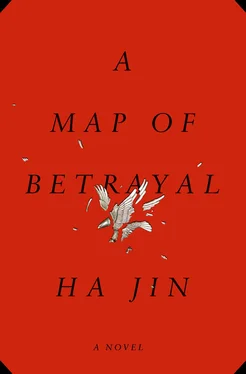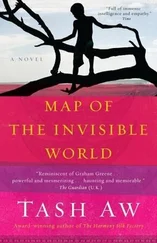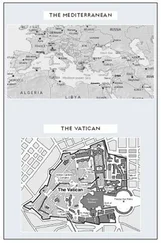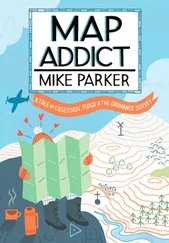“Okay, I hear you.”
“I’m going to mail you some articles on your grandfather. You should read them carefully and see how he messed up his life here. Don’t be a blind patriot like Gary.”
“Thanks very much. Do send them along. I can’t wait to know more about my granddad.”
Should I mail him all the thirty-odd pieces in my file? I wondered. I decided not to. Instead, I Xeroxed seven major articles on Gary’s case published in The New York Times and The Washington Post . Before stuffing them in an envelope, I looked through them again. My eye caught a passage I had underlined: “By Shang’s own confession, he received cash for every delivery of intelligence, though at the moment it remains unclear how much he has actually been paid. According to a CIA officer, who spoke under anonymity, Shang had expensive taste and was a big spender. To date, the CIA has refused to comment and only insists that it has been participating in the investigation actively.” I turned to another article, which said: “The Chinese have a different way of conducting espionage. They are extremely patient, and their secret agents tend to remain dormant for many years before they become active. Undoubtedly Shang was a master mole, a key source of intelligence for the Chinese. His spying activities have severely breached our national security, although at the moment it’s impossible to assess the enormity of the damage.”
I didn’t want to give Ben the complete coverage of the story, figuring that some of the more devastating details should be disclosed to him step by step. I FedExed him the seven articles the next morning.
On August 28, 1969, The Washington Star published a frightening piece of news. A front-page article stated that the Soviet Union, tired of the border clashes with the Chinese, had been planning massive air strikes on China’s nuclear installations. The Soviets had been sounding out the leaders of various countries on their reactions if it took such an extreme step. Although printed in the metro evening paper, whose reputation had in recent years fallen close to that of tabloids, the news unsettled the public. Gary had no doubt about the credibility of the report and was more interested in the motive behind such a publication. Even the U.S. State Department had been interviewed about the Soviets’ air-raid plan, though its spokesman said this might be just “a rumor.”
The news seemed to have been released through the usual channels, but some people in the DC intelligence community suspected that the report might be a maneuver by the White House — although there’d been discussions about destroying the Chinese nuclear arsenal in academic circles, this was the first time the topic had been broached publicly. The intelligence analysts surmised that by making this story appear in the media, the U.S. government might have been signaling and even making small overtures to the Chinese. In contrast, some others felt that the Russians might have a hand in this report, taking advantage of the U.S. media to put more pressure on China, because word of the story would surely get to Beijing and might help restrain Mao and his comrades. There were other speculations as well. Yet some military analysts dismissed the report as mere gossip, insisting that if the Russians had intended to bomb China’s nuclear facilities, they’d have been quiet about it.
Like many of his colleagues in DC intelligence circles, Gary was convinced that the Soviet plan for the air strikes was by no means idle talk or a diplomatic gambit. He got agitated, wondering how China would respond. Bingwen was still absent from the scene, possibly no longer even alive, so Gary remained cut off from his homeland. He wondered if his comrades had given up on him. Why would nobody get in touch with him? Didn’t China need a reliable source in the CIA? Even Father Murray had no idea how to communicate with Beijing anymore, though they both believed that through various channels the news about the Soviets’ attempt must have reached China.
Sure enough, two weeks later Mao issued the internal order that the whole country “dig caves and store away grain widely.” Gary did some research and found out that over the years the Chinese had actually been preparing for air raids, though they’d expected them to come from American bombers. Near every city caves and bunkers were dug and built, mostly in suburban hills and valleys. Then, right before October 1, 1969, the twentieth National Day, on which a large celebration was to be held in Tiananmen Square, China detonated two nuclear warheads in its western desert. One of them was a three-megaton hydrogen bomb. Gary interpreted these explosions as China’s signal to the Russians that it was capable of dropping warheads of multiple megatons on the Soviet Union with the intermediate-range missiles the Chinese already possessed. Though the nuclear tests also showed that China might have overreacted, Gary felt relieved and even began to see that Mao was an astute politician, having foreseen China’s need for nuclear weapons for self-defense.
Meanwhile, Gary’s domestic life was quiet, even as his affair with Suzie continued. During the summer of 1969 Suzie had dated a Greek diplomat, a soft-voiced man with a handlebar mustache, but the relationship petered out after the man was called back to Greece, so she returned to Gary. Gary was pleased to have her back in his life, though he didn’t say so. At home he and Nellie seldom quarreled now. They slept in the same bed at night, though he was a restless sleeper and often woke her up, speaking both English and Chinese in his dreams. Whenever he argued with someone in his sleep, he would yell out curses and warnings in his mother tongue, of which Nellie couldn’t make out a word. But during the day he’d be quiet and gentle again, somewhat remote.
Now that he had more free time, he often played Chinese chess with Lilian, who had just started middle school. He’d taught her all the moves, which were incomprehensible to Nellie, who couldn’t even tell a cannon from an elephant. One out of five games his daughter could beat him. Whenever this happened, he’d be elated, praising the girl for her “iron wit.” He often said he wanted her to attend a prep school so that she could go to a top college. Occasionally father and daughter would communicate in simple Mandarin words and phrases. That annoyed her mother, who would scowl at her because she couldn’t understand. She often muttered, “Like father, like daughter.” Yet in spite of his love for Lilian, Gary planned to send the girl away in the near future to prevent her from getting in his way — he wouldn’t have her enter his study when he wasn’t home.
In the spring of 1970, Nellie went out to work at a bakery called Peggy’s Kitchen. She enjoyed making bread, cookies, pies, cakes. Working for Peggy Loschiavo, a stout woman of sixty-two with fluffy white hair and thick glasses, Nellie became more energetic, in spite of her menopause, which she believed was too early for a woman who had just turned forty-one. She attributed the cessation to the stress Gary had caused her. Every day she brought back fresh bread that both her husband and daughter loved. And Gary grew fond of focaccia, onion rolls, challah, sourdough bread, croissants. He enjoyed munching fresh-baked bread with sausage, especially linguica, together with raw garlic. Sometimes Nellie also got leftover pastries for free: apple turnovers, chocolate rugelach, strudels, various kinds of cookies. Gary had never eaten so much sweet food, every piece of which was shot through with sugar and butter, so quintessentially American. He loved pastries with flaky crusts and fruit fillings. By way of joking he told his wife, “I’ll put on twenty pounds by the end of this year.” In reality, he couldn’t get fat no matter how much he ate. He often said he wished he were a gourmet plus gourmand so that he could have enjoyed all the fine bread and pastries with gusto. A moderate eater, he was the type of person who was “born thin.”
Читать дальше











